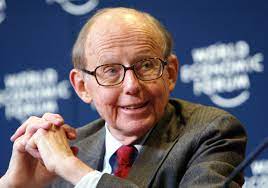Huntington, Samuel

Bio: (1927-2008) American political scientist. Samuel Huntington received his doctorate and taught at Harvard University. In The Soldier and the State (1957), Huntington explores the history of the U.S. military and its relationship with the state, as well as civilian control of the military. In the new edition of the same book, which appeared in 2005, Huntington states a clear position against civilian control over the army and advocates maintaining the constant readiness of the American army. In 1970, Huntington founded and became the editor of the journal Foreign Policy. In American Politics: The Promise of Disharmony (1981), Huntington examines the differences between political ideals and political reality in the United States. He believes that love of freedom and contempt for dictatorship is at the core of the American ideal. In order to spread democracy and freedom, the United States must be fully engaged in the world militarily.
In The Third Wave (1991), Huntington explores what he calls „waves of democratization“, periods in which the number of democracies increases, as well as counter-waves, periods in which the number of democracies decreases. The third wave of democratization has been going on since the mid-1970s and begins in Southern Europe, continues in Latin America, and includes the Philippines, Taiwan, and South Korea. In the early 1990s, democracy spread to the former socialist countries. the book investigates which external and internal factors help or hinder the democratization of a country.
As factors that contribute to democratization, he states: declining legitimacy of undemocratic regimes, improving the economic situation, increasing education, rising urbanization, middle-class growth, changing the attitude of the Catholic Church towards undemocratic regimes, the snowball effect or the transfer of democracy from one to a neighboring state, and expanding the influence of the European Union and the United States. The most significant negative factor that acts against the realization of democracy in a country is the possession of large oil fields, which especially affects Arab countries. Funds collected from the export of oil give ruling elites the freedom to fund their budgets without depending on the taxation of the general population. Huntington states that the choice, perceptions, beliefs, and actions, of elites in countries that are undemocratic, are very important for the positive democratic transition. Subsequent democratic consolidation also depends on pacts and consensus that elites make between themselves.
In The Clash of Civilizations (1996), Huntington hypothesizes that states are increasingly cooperating based on a common culture, which will, in the future, lead to the creation of a world in which there will be separate and conflicting civilizations. He believes that seven or eight such separate civilizations will emerge: Chinese, Japanese, Hindu, Islamic, Orthodox, Western, Latin American, and (potentially) African civilizations. Each of them has all the elements needed to build a common culture: language, history, identity, customs, institutions, and religion. This clash of cultures, that is, civilizations, will become more important than ideological, political, and economic differences or similarities. In a similar vein, in the book Who Are We? (2004), Huntington argues that Latin Americans refuse to accept what forms the basis of American identity — Protestant religion and ethics, the English language, individual responsibility, and capitalism. Because Latin Americans have high birth rates, Huntington thinks that there is a significant possibility that in the future there would arise a large Latin population, that would like to divide America.
Main works
The Soldier and the State: The Theory and Politics of Civil-Military Relations (1957);
Political Order in Changing Societies (1968);
The Crisis of Democracy: On the Governability of Democracies (1976);
American Politics: The Promise of Disharmony (1981);
The Third Wave: Democratization in the Late Twentieth Century (1991);
The Clash of Civilizations and the Remaking of World Order (1996);
Culture Matters: How Values Shape Human Progress (2000);
Who Are We? The Challenges to America’s National Identity (2004).

